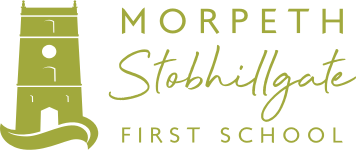We no long use cross-curricular approaches to teach the broader curriculum. All broader curricular subject are now planned using stand alone units of work which form part of carefully sequenced long term plans.
Careful consideration has been given to the timetable to ensure breadth and depth of coverage of all subjects. Some subjects may be taught weekly, others may be taught half-termly. Over the three terms of the academic year, each child has the opportunity to experience the full range of National Curriculum subjects, and over the duration of a whole key stage, the pupil will have been taught all subjects in line with the new National Curriculum. A great deal of thought has been put into our curriculum overview, long and medium term plans and also how children will be supported in retaining information.
Long-term plans include a coverage of subject areas across the whole school. This enables children to develop an in depth range of vocabulary, knowledge and skills through age-appropriate progression of skills and knowledge. Progression of learning in skills and knowledge has been organised with consideration for the baseline knowledge children need for each new area of learning across subjects.
We worked collaboratively with other schools in the Morpeth partnership to create progression documentation for all broader-curricular subjects. They outline clear year group expectations for all subjects (R-Y13). This typicality of approach ensures that all children regardless of which feeder school they come from, should transition to middle school with the same set of subject specific knowledge and skills. This document is integral to all of our long/medium term planning. You can view these progression documents on each of our subject pages!
How we ensure our children know more and remember more
| Knowledge Organisers | Low-Stakes Quizzing | Lesson Structure |
|---|---|---|
| Knowledge organisers have been created, where it supports learning in these subjects, to ensure that the core content of each unit is clearly outlined to clarify the knowledge necessary for the unit of work. A knowledge organiser acts as a planning, teaching and assessment tool. It provides complete clarity to leaders, teachers, pupils about what is expected to be learnt and remembered by the end of the lesson, the unit, and in the curriculum area. | An overwhelming body of evidence from studies in cognitive science, psychology, economics, physics, chemistry, maths, and many other disciplines indicates that students learn most effectively with frequent opportunities to recall and attempt to apply the knowledge they have acquired. Roediger (2013) provides a summary of the cognitive psychological research on this issue. He notes that student learning is enhanced by frequent practice, and this is most effective when the practice is distributed across time and across tasks. Due to this, we use use low-stakes quizzing, to regularly engage knowledge from previous lessons, units and year groups. | We have given significant thought to how we structure lessons to enable our children to remember more. Most broader curriculum lessons (particularly Humanities and Sciences) start by re-engaging with prior knowledge/ key vocabulary and direct teaching. The lesson then has a practical element (sorting, drama, exploring artefacts etc). We believe hands-on experiences are important and our children respond better when being engaged in practical activities. This also provides opportunities to verbalise understanding with peers prior to recording learning later in the lesson (diary entries, explanations, comprehension questions) |
How do we use assessment?
| Pre-Post Assessment | Testing | Teacher Assessment |
|---|---|---|
| Prior to starting a unit of work, in several subjects, children complete a pre-assessment. In Writing, this takes the form of a cold-write, that informs individual pupil targets and the direct teaching that is required to enable the children to succeed in that particular genre. The childrens hot write is then assessed at the end of the unit. In some broader curriculum subjects children complete an assessment which assesses the knowledge they should already have acquired in previous units/year groups. At the end of the unit children are assessed to see if they have retained the new knowledge which has been taught. | We use National Test-style Standardised Assessments in Maths and Reading from Y1-4, 3 times a year. These tests include content the children have covered so far this year plus objectives from previous year. These tests provide valuable Gap analysis for pupils and cohorts, which informs future teaching. We also use additional schemes/programmes that provide us with valuable assessments and data analysis, including: Read Write Inc Accelerated Reader Reading Plus Staff use these assessments regularly to ensure children are accessing teaching and learning at an appropriate level (e.g. Reading books, phonics groups etc) | Keystage 1 and 2 formally submit data 2 times a year (January and June) for Reading, Writing and Maths. This data is informed by both summative and formative assessment. As a school we are currently working on an approach to assess the broader curriculum, we have already trialled this for History during the Autumn term. |

